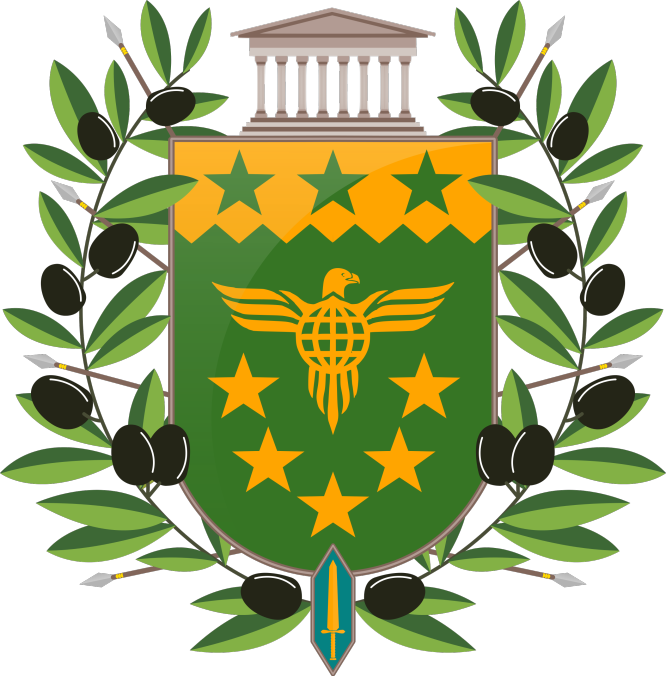
A MOTION
To amend the Constitution
Introduced into the Council of State of the Union of Democratic States on the 18th of June, 2023, by Guess and Check
As follows:
BELIEVING the Council of State is a better improvement over the Senate
YET believing that the Council of State would be better served if opened to all Citizens,
BE IT ENACTED by Council of State:
1. Article II of the Constitution shall be replaced by the following in its entirety:
“1. The Council of State (or Council/CoS) shall be composed of all citizens in good standing with the Council.
a). To lose good standing with the Council, a citizen must have been convicted of a crime and had their right to participate in the Council removed by the Supreme Court or punished by the Council following the Council’s internal procedures. Loss of good standing may be for a specific time period or permanent.
b). The Speaker of the Council shall make a list of citizens not in good standing with the Council, alongside the expected date in which their standing will be restored (if applicable).
b). Citizens who do not have good standing in the Council may not vote in Council votes, propose motions, or otherwise participate in internal Council matters. However, such citizens may still propose bills to the Council and post an opening statement for such a bill..
2. Any proposed bills will be presented to the Speaker of the Council, who shall be selected by voting citizens following the same timeline as the President.
3. The Speaker of the Council will be tasked with opening the debate and voting periods.
4. Bills will be opened for debate by the Speaker of the Council after the bill’s author(s) and other designated individuals make their opening statements, at which point all citizens may engage in debate and propose amendments.
a). Any citizen may motion to close debate at any time. This motion must be seconded to come into effect.
b). The Speaker of the Council will then move the bill into its appropriate voting stage.
c). The two voting stages will be Amendment voting, which will only be in effect if there are proposed amendments and will last for a period of 72 hours, and Full voting, which will determine the result of the bill.
5. Votes of the Council shall fail if less than three citizens vote or abstain.
6. The Council may pass motions. These do not require Presidential promulgation, and may not be vetoed. These do not hold the same legal power as laws, but some may be deemed as legally enforceable. Examples of motions the Council may pass include:
a). Vote Directives for the General Assembly of the World Assembly. When a proposal reaches a vote in the General Assembly, the Council shall reach a position if the World Assembly Delegate should vote for, against, or abstain from the measure.
b). Rules of Procedure, in which internal rules and procedures are established.
c). Committee Establishments and Dissolutions, in which a formal body consisting of appointed citizens is created or dissolved.
d). A Summon, in which the summoned individual shall answer questions before the Council.
e). This list is non-exhaustive and may be expanded upon via law or motions.
7. The Council may overturn vetoes from the President with a three-quarters supermajority.
8. The Council shall hold confirmation votes on the World Assembly Delegate, Justices, and unelected Vice Presidents. Confirmation votes shall fail if they do not reach the required amount of votes. Failed confirmation votes result in the relevant official being removed or not appointed to office.
9. The Council may remove from office the Vice President, Cabinet Ministers, Justices, the World Assembly Delegate, the Speaker, the Chief Commissioner and the Deputy Commissioner by a successful motion to that effect due to:
a). Over 10 days of inactivity.
b). Criminal conviction.
c). Other reasons established by law.
10. The Council may remove Cabinet Ministers from office by a successful motion to that effect. Citizens removed as Cabinet Ministers may not serve as Minister for the rest of the term.
11. The Council holds the power to veto Executive Orders via a majority; similar powers shall exist in regards to any form of delegated or secondary legislation.
12. All votes of the Council of State shall not be considered referendums, excluding Full Votes on constitutional amendments. Full votes on constitutional amendments shall be treated as referendums and handled by the Electoral Commission.
13. All Speaker selections of the Council of State shall not be considered elections or by-elections.”
2. Article VI, Clause 1. of the Constitution shall be amended to read: “Amendments to this constitution must be passed by a three-quarters supermajority in a referendum.”
3. Article VI, Clause 5 of the Constitution shall be amended to read: “The offices of President, Vice-President, Chief Justice, Justice, Speaker of the Council, and Deputy Speaker of the Council shall be mutually exclusive. No citizen may hold more than one such position at a time.”
4. Article VI, Clause 6 of the Constitution shall be amended to read, in its entirety: “Justices may not serve as the Attorney General.” Subclauses 6a and 6b shall be removed.
